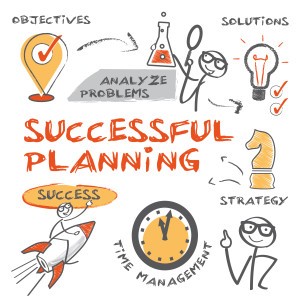In many organizations, the largest line item in a Marketing budget is for events such as trade shows, conferences and launches. Forrester Research has found that approximately 30% of B2B Marketers prefer to decrease event spending, but 21% said they expected to increase spending on events.
So why the dichotomy?
Events are no different than most things in life, just like databases—you get out of them what you put into them. However, all too often companies do not plan events properly which is a recipe for failure. The result is an unsuccessful, reactive fire-drill which ends with little to no results.
On the other hand, when events are well-run they drive revenue, so sales people are vocal supporters.
For a successful event, it’s important to use a three tiered selection process to quantitatively and objectively select events that align and support an organization’s marketing strategy. Objective, relevance and the ability to execute should be the key criteria to evaluate events and set sales and marketing teams up for success.
What is the Objective for Attending the Event?
Brand Objective
Is it an opportunity to brief press, analysts and/or influencers with news?
Is the organization making a product announcement?
Is a competitor planning a huge announcement that your organization is trying to disrupt?
Customer Acquisition Objective
Is the focus to increase awareness?
Or is the focus to increase the size of the target prospect database?
Is it to go from qualified leads to marketing qualified leads to sales qualified leads (top of funnel)?
Or is it to advance a deal along a sales stage by leveraging subject matter experts and executives that will be in the same location for a period of time?
Customer & Market Intelligence Objective
Will key competitors be in attendance and will the right people be on-site who can learn about the messaging and positioning of the competitive product and inner workings of the solution?
Is there calendar availability or are the relationships strong enough to secure off- show meetings?
Is there meaningful, relevant information about technology, markets, customers, products or partners to share?
What is the Relevance for Attending the Event?
Brand Relevance
Will there be a critical mass of press, analyst and influencers at this particular event?
Will the organization be able to secure predetermined time slots with the key spokespeople and press, analysts and influencers at the event?
Does the organization have relevant and meaningful content around technology, markets, products, competitors, revenue, customers or partners to share?
Customer Acquisition Relevance
Does the profile of the attendee map directly to your organization’s Target Account Profile?
Is there a critical mass of attendees that are suspects, prospects, marketing qualified leads or in later stages in the sales pipeline?
Are relevant sponsorships available and can the organization execute against the needs of the sponsorship?
Are speaking opportunities on key topics available and does your organization have a speaker that is available to deliver?
Will the attendee list be available far enough in advance to help drive attendance? Is last years’ list? Or a targeted list with a 100 radius of the event?
Customer Retention Relevance
How many existing customers will be in attendance at the event?
Of the customers attending the event, how many are of strategic importance, how many contribute a significant amount to revenue, how many are reference able and how many are not happy?
Is there an opportunity for a customer to speak at the event or participate in a co-speaking opportunity?
Risk/Threat Relevance
How many key competitors will participate the event and in what capacity?
Are any key competitors anticipated to make a key announcement?
What is the probability that customers and prospects will interpret non-participation of your organization at the event as a de-commitment to the market?
What is the Organization’s Ability to Execute This Event?
Pre-Event – Ability to Execute
How well does the profile of the event attendees map to the organization’s target account profile?
How many sales and marketing people are confirmed to proactively work the event?
How many customer meetings can be scheduled with customers and prospects?
Is there an event planning team, an event plan and a weekly event planning meeting that begins at least ten weeks before the event?
Who approves the messaging, positioning and signage for the show and do those requirements map to the plan?
At Event- Ability to Execute
What are the quantitative goals for the show – i e. # of business cards, # of meetings, advancement of deals in the pipeline, closed deals, etc.?
Can the organization effectively communicate the key messages as quantitatively documented in positive press, evaluation forms and surveys?
Can the organization generate social media buzz such as tweets, retweets, likes, blog posts, comments, etc.?
Post-Event- Ability to Execute
Can leads be collected, processed, scored and routed in real-time?
Can nurture paths be set in motion at the event?
Will be organization be able to leverage event assets on the website, in follow-ups and lead nurture?
Can the organization follow-up on all social media channels to continue and promote engagement?
Is there an ability to track, monitor and manage metrics to document ROI?
For more visit: http://www.business2community.com/marketing/marketing-strategies-event-planning-01257589

